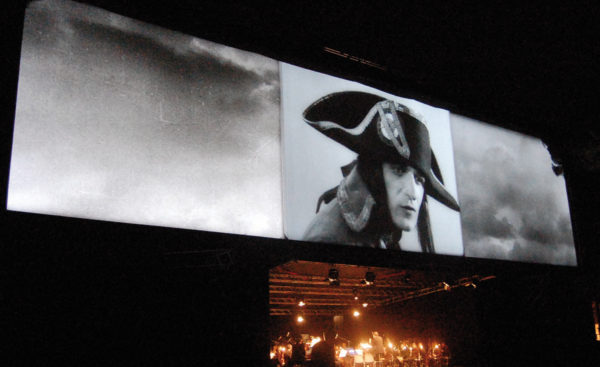

We are a global network of media professionals. AMIA members work for universities, studios, government and corporate archives, public broadcasting, music companies, cultural heritage and arts organizations, broadcasters, service providers, libraries, and independent archives, and more. We are archivists, librarians, collectors, curators, students, educators, artists, technologists, researchers, distributors, exhibitors, service providers, consultants, and advocates. Everyone working to preserve and access their media collections.
The Association of Moving Image Archivists (AMIA) is a nonprofit international association dedicated to the preservation and use of moving image media. AMIA supports public and professional education and fosters cooperation and communication among the individuals and organizations concerned with the acquisition, preservation, description, exhibition, and use of moving image materials.
Moving image archivists worldwide shall have the support, the protection, the education, the information, the funding, and the resources necessary to properly and effectively preserve and make accessible the world’s moving image heritage for current and future generations.
AMIA is committed to diversity, inclusion, and equity as core values, to be reflected in our membership and within the institutions and constituents we serve as stewards of our moving image heritage.
Anytime people gather as a group we form both a community and a culture. As members of AMIA we are committed to creating and fostering a safe and inclusive environment. We aspire to create a culture that is respectful, supportive, open, curious, and kind in order to cultivate a diversity of perspectives and voices within our professional community.
We know that the best communication and critical thinking happens when people with a wide variety of experiences and perspectives come together in comfort and safety as peers. We expect all participants in the AMIA community to approach their participation in online and in person events and discussions as helping to create thoughtful and respectful environments where that interaction can take place.
AMIA’s governance documents – in particular our Community Agreement, Statement on Diversity and Inclusion, and Code of Conduct – work together to help us to create the culture we aspire to.
AMIA believes that advocacy is essential for promoting the importance of archives and archivists as the cultural caretakers of our media heritage. AMIA’s Advocacy Policy outlines guidelines for AMIA’s involvement in advocacy, whether at the local, state, federal or international levels and the procedures for determining how, when, and to what extent AMIA should become so involved.
AMIA’s preservation partners provide support for all of AMIA’s programs and events throughout the year.
For more than 60 years, Iron Mountain has preserved priceless originals of blockbuster movies, popular songs, hit TV shows and other irreplaceable film and sound recordings. In doing so, the company helps major movie studios, recording labels, television production companies, and advertising agencies reduce their risk of losing or damaging these cultural artifacts, either physical or digital. Today, Iron Mountain continues to lead the industry in preserving and transferring analog and digital entertainment assets, offering unmatched expertise and resources, including: Experience in managing more than 21 million film and sound elements for more than 1,500 customers, including all of the top entertainment companies; A fully integrated digital studio to handle analog to digital transfer and storage for audio, video, and film assets; Highly secure, climate-controlled facilities that ensure preservation of valuable film and sound elements; A dedicated, trained, and screened staff of security professionals who keep assets secure and protected; A highly skilled team of award winning engineers to assist in digital transfers, migrations, and content delivery in 3 dedicated studios located within our preservation vaults, ensuring complete chain of custody of your assets.
DP Labs is the leader in migration, inspection and cloud optimization for digital archives: Digital Media Recovery, Advanced Image Lineage Verification QC, Digital Picture Exchange (DPX) Metadata Inspection, Archive eXchange Format (AXF) Creation & Verification, and Preservation Cloud Optimization Through Image Dehydration™.
Prasad Corporation utilizes the latest tools to scan and restore your motion picture film, including the DFT Scanity with high Dynamic Range technology. We focus on offering economical solutions to help you digitize your collections and make them more accessible. As Prasad Corp, our team’s years of experience allow us to handle complicated restoration projects.
DFT: Digital Film Technology. Film archives are of great historical importance and require long-term preservation for future generations. Whether you are considering long-term film archival of the original content and / or digitization of archival material for easier access DFT offers a complete and affordable hardware and software combination for archive facilities to secure the protection of film assets.
AMIA partners with other organizations to share information and collaborate in finding solutions to issues that face the archival field, regardless of specialty. In working with these organizations, the positive impact of each organization is dramatically increased.
Established by the National Film Preservation Act of 1988, the National Film Preservation Board works to ensure the survival, conservation and increased public availability of America’s film heritage, including: advising the Librarian on its recommendations for annual selections to the National Film Registry, apprising the Librarian of changing trends and policies in the field of film preservation, and counseling the Librarian on ongoing implementation of the National Film Preservation Plan.
The CCAAA is the successor of the Round Table of Audiovisual Records and serves as a platform for international audiovisual archive associations to voice collective opinions and exercise influence at international and government level when decisions concerning the audiovisual cultural heritage are being taken.
UNESCO’s Memory of the World Program is an international initiative launched to safeguard the documentary heritage of humanity against collective amnesia, neglect, the ravages of time and climatic conditions, and willful and deliberate destruction.
UNESCO’s mission is to contribute to the building of peace, the eradication of poverty, sustainable development and intercultural dialogue through education, the sciences, culture, communication and information AMIA is a UNESCO recognized NGO with consultative status.
AMIA also works with a number of organizations from around the world that share our commitment to the preservation of our cultural heritage.